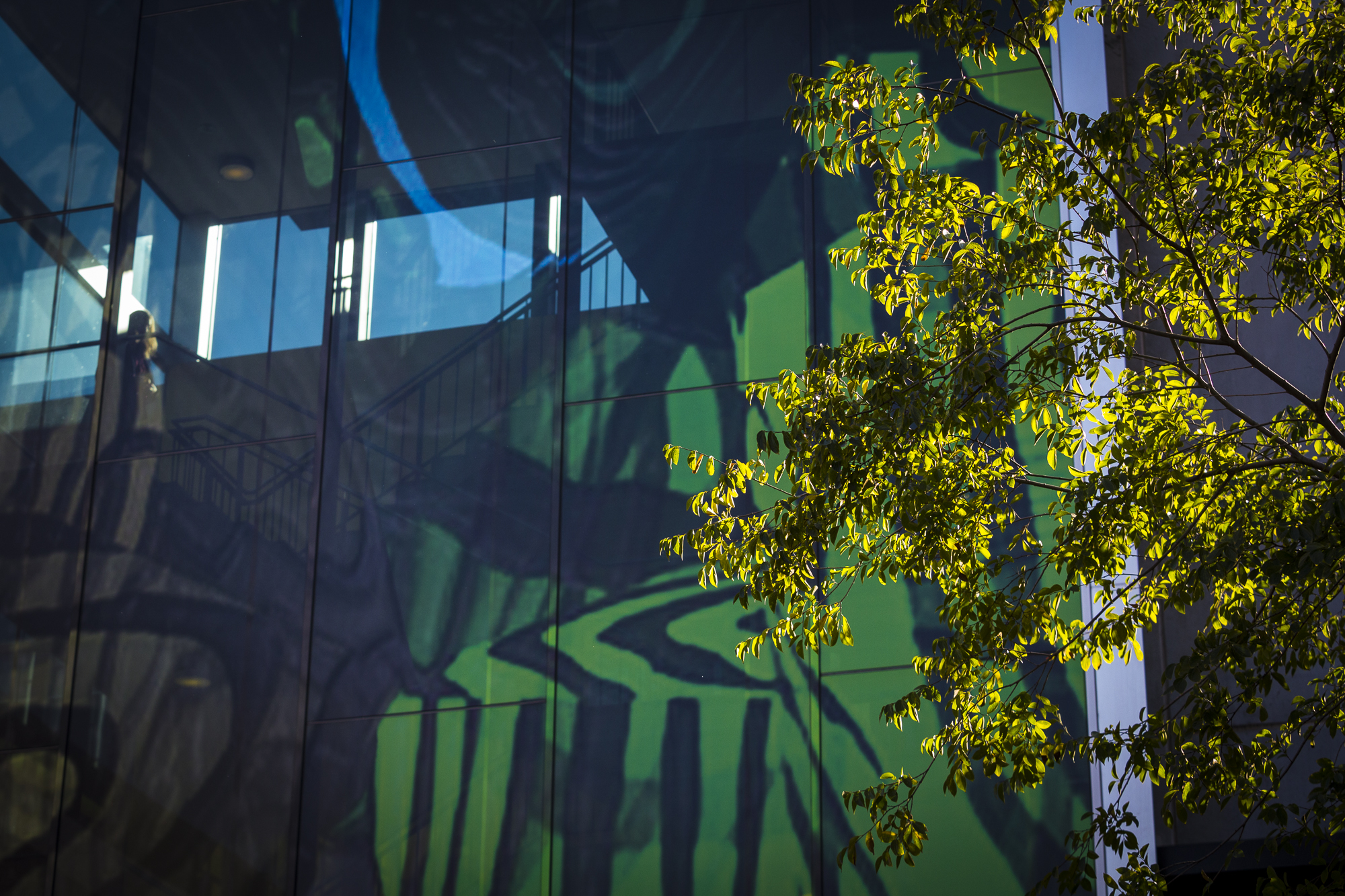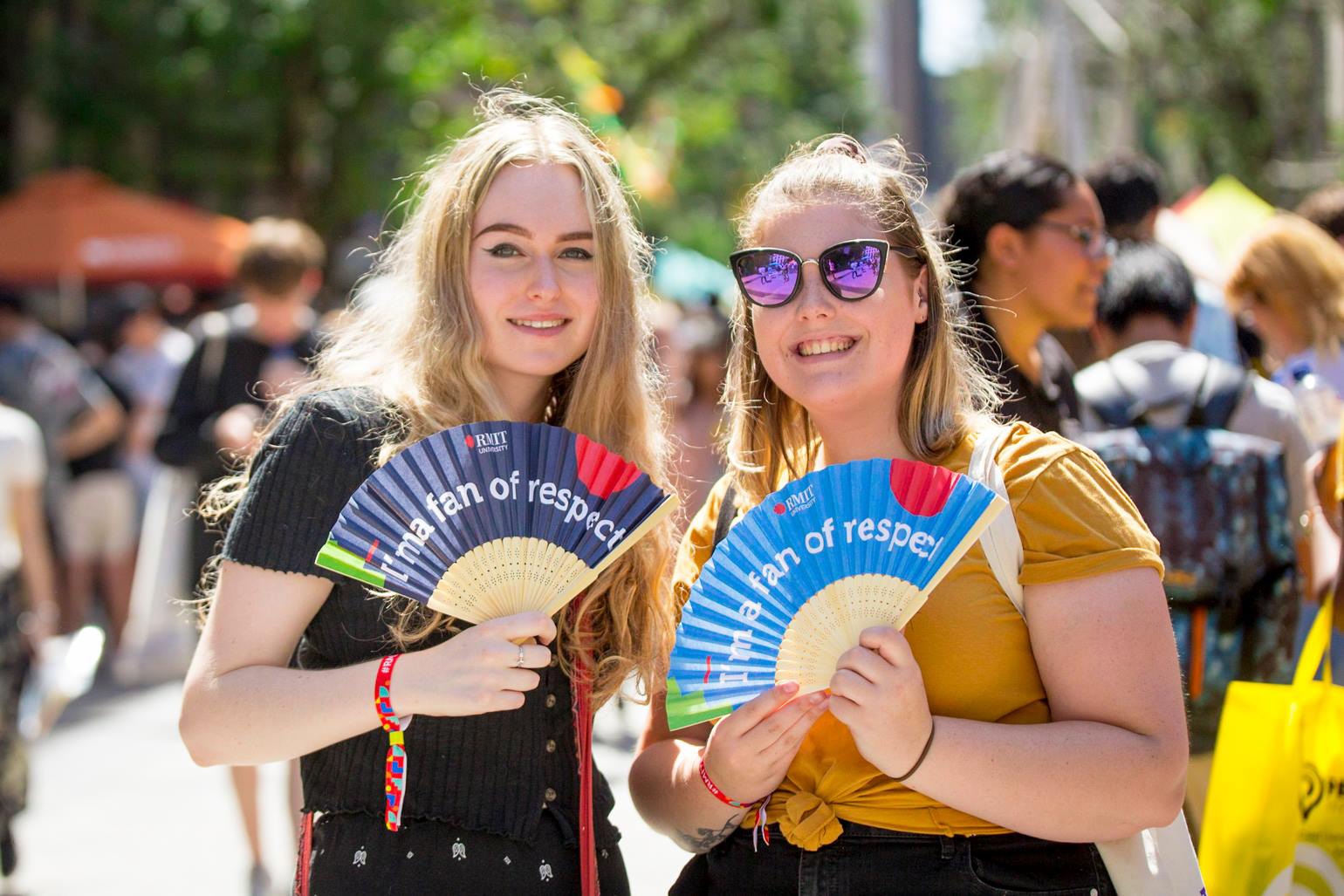
At RMIT, we believe that investing in mental health and wellbeing is essential for our success.
RMIT exists to create transformative experiences for our students, getting them ready for life and work, and to help shape the world with research, innovation, teaching and engagement.
To help our students realise their enormous potential, RMIT is committed to promoting both student and staff mental wellbeing. We are passionate about RMIT being a supportive, diverse and inclusive place to learn, research and work.
To achieve this, RMIT has prioritised staff and student mental wellbeing initiatives.
This is our courageous vision statement, and our ongoing challenge is to make it a reality for people in their day-to-day lives while working and learning at RMIT.
As a place of learning, our primary objective is to create bright and open futures for our students and graduates to grow into. We must prepare them for a world where they feel safe to explore with the confidence and can make a positive contribution.
Staff also need to feel they are valued, listened to, and part of a culture that cares whether they are well or not. A mentally healthy workplace is somewhere people want to be not just because they are paid to be there or because they are passionate about the job.
Our approach is not designed as a short-term fix for risks or problems that are easily identified and remedied or removed. Student and staff supports such as counselling and employee assistance programs are crucial to our ongoing work for those confronting wellbeing challenges or mental ill-health, but we need to do much more.
RMIT has also shifted attention towards promotion, prevention and early intervention activities that address more the underlying causes of work- or study-related distress.
In 2019, we committed to an integrated approach for both students and staff. This represented a major shift in our focus and a major innovation for the tertiary education sector.
To carry our commitment from words into action, RMIT’s Mental Wellbeing Strategic Action Plan 2020-2025 (the Plan) was drafted by the newly formed Wellbeing Initiatives Team, with extensive internal and external consultation. The Plan was subsequently endorsed by the then Vice-Chancellor, Martin Bean CBE, along with a draft Implementation Plan and Evaluation Framework.
The Plan’s Key Action Areas broadly map onto external frameworks of mental health promotion and prevention in Australia’s university context. For students it reinforces core principles of the Australian University Mental Health Framework, and for staff it aligns with the Blueprint for Mentally Healthy Workplaces.
After a delay due to COVID-19, the Plan was officially launched in 2021, and the first Mental Wellbeing Survey of all onshore students and staff was conducted (attracting more than 3000 responses). The survey and other data inform our priorities for 2022 and beyond, which are to:
Download the 2022 Mental Wellbeing Annual Report (PDF).
Download the 2021 Mental Wellbeing Annual Report (PDF).
Read about RMIT's Health, Safety and Wellbeing Commitment.
Staff can find out more at RMIT Health, Safety and Wellbeing (login required) webpage.

batyr runs programs for students to help them look after their mental health, and make sure they know where and how to seek help.
Psychosocial safety climate is defined as “shared perceptions of organizational policies, practices and procedures for the protection of worker psychological health and safety, that stem largely from management practices.” - Law, R., Dollard, M. F., Tuckey, M. R., & Dormann, C. (2011)
Acknowledgement of Country
RMIT University acknowledges the people of the Woi wurrung and Boon wurrung language groups of the eastern Kulin Nation on whose unceded lands we conduct the business of the University. RMIT University respectfully acknowledges their Ancestors and Elders, past and present. RMIT also acknowledges the Traditional Custodians and their Ancestors of the lands and waters across Australia where we conduct our business - Artwork 'Luwaytini' by Mark Cleaver, Palawa.
Acknowledgement of Country
RMIT University acknowledges the people of the Woi wurrung and Boon wurrung language groups of the eastern Kulin Nation on whose unceded lands we conduct the business of the University. RMIT University respectfully acknowledges their Ancestors and Elders, past and present. RMIT also acknowledges the Traditional Custodians and their Ancestors of the lands and waters across Australia where we conduct our business.